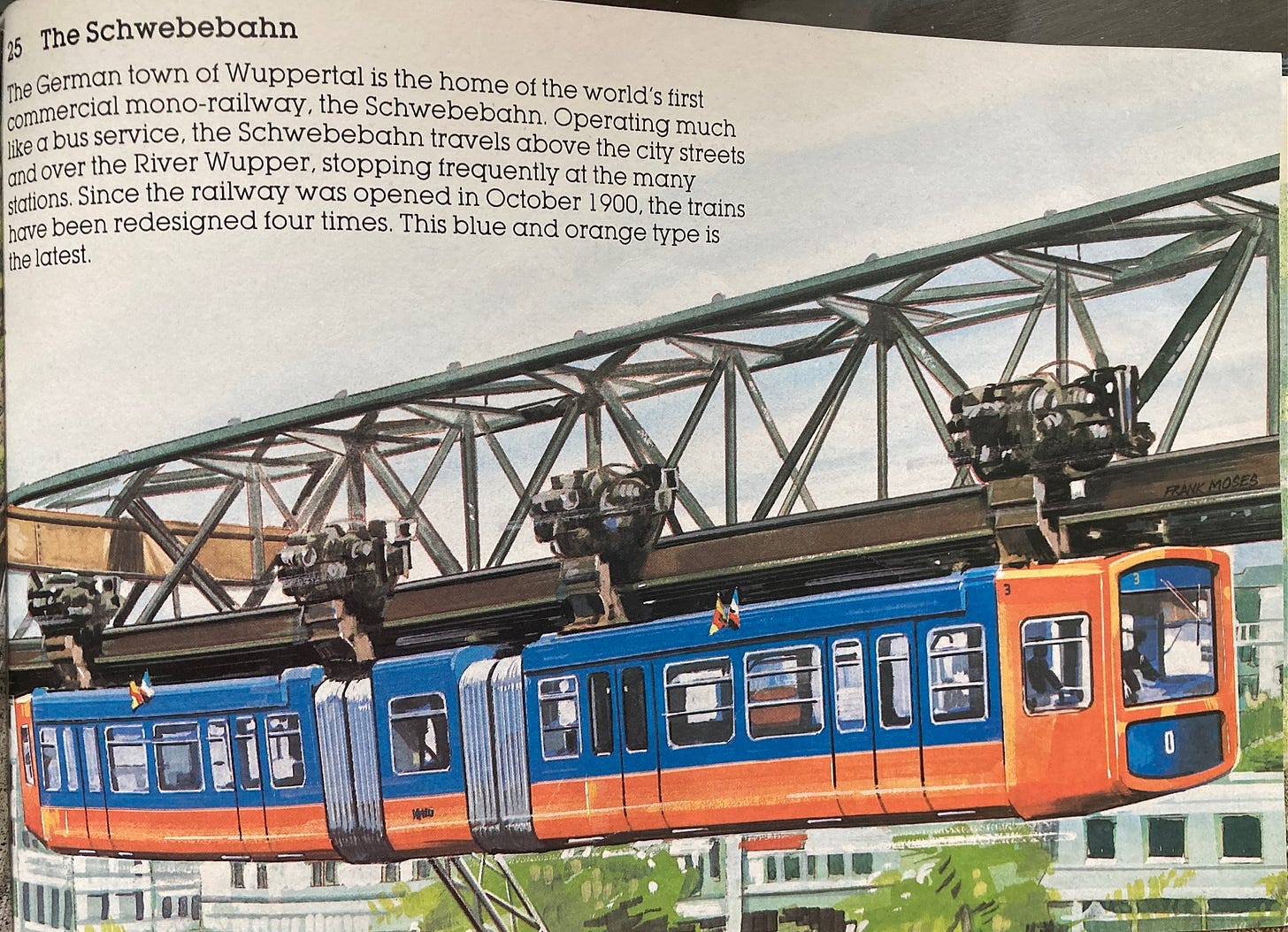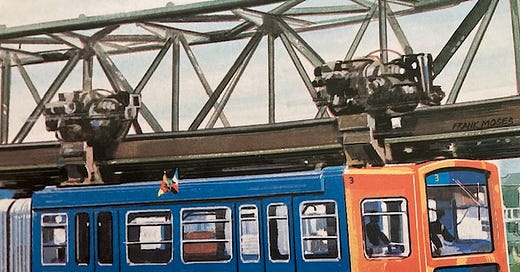Noah Depew has released a number of musical pieces as Burning Plastic Blues Band. His most recent release is Peculiar Refractions in the Fullness of Time. Recently, he also gigged as the bass player with Cleveland indie band the Cloud Nothings.
Twenty-one years before that, he bounded over to me in his dad’s recording studio, asking me to read him a story.
He handed me a picture book called “Amazing Trains of the World.”

It’s no longer in print. It’s a terrible book, particularly to read aloud to kids while your drummer friend, Bob, is in the studio trying to lay down vocal tracks with Noah’s dad, Don Depew, and the playback is blasting overhead.
Noah had just turned five, and Don was charged with watching him while his spouse was out and about. So I started reading the book to Noah in the studio control booth. And I started getting interested in the trains it described.
I hit the page about the Tokaido Shinkansen — the bullet train in Japan — and as I read aloud, my mind drifted to the Sparks tune “Bullet Train” from their excellent Balls disk (“…it’s immaculate, immaculate, immaculate, yeah.”)
Noah interrupted, asking me to flip back a page and read about the Schwebebahn, the German monorail that’s suspended from its tracks. I obliged, and asked him which train in the book he liked best.
“All of ‘em!” he answered with all the enthusiasm five-year-olds always seem to be able to randomly muster. “I want to ride ‘em!”
And boom, there was the song:
It’s a musical compendium of trains described in the book, and a few summoned from the dark recesses of my brain. I’ve ridden a couple of the trains I describe, the Duquesne Incline (“…out in Pittsburgh, trains they climb up a hill”) among them. If you’ve ever ridden the 146-year-old funicular, about halfway up, the damn thing’s chugging and creaking and wheezing and struggling away, you start sweating it — hence the “I think I can, I think I can” reference to “The Little Engine that Could.” Of course, even the most nervous passenger always ends up safely deposited on top of Mount Washington (“…yeah you will.”)
“Amazing Trains” may well be the only pop tune that uses the word “bifurcate” in its lyrics in the Shinkansen name check (“…in Japan, they got a bullet train, and it bifurcates the Asian terrain.”) I couldn’t figure out another three-syllable verb to describe the action. So be it.
I couldn’t help but take a jab at the Trans-Siberian Orchestra in the tune, as well. More power to ya if you love ‘em, but I can’t deal with their over-wrought, histrionic, speed metal, sweep arpeggio-laden massacre of Christmas classics (“…Trans-Siberian’s a train, not a band that tortures melodies until they’re all bland.”)
I conjured the bridge in the tune from personal experience taking a train from Warsaw to Moscow, where I studied Russian for a semester in the autumn of 1978. This was the fully-blown, Brezhnev Soviet Union.
No one prepared me for the bizarre travel interruption awaiting me and my fellow student travelers in the middle of the night at the Soviet border town of Brest, which is now in Belarus. Grinding metal sounds and barking police dogs jarred me out of a fitful, achy nap wedged between my luggage and the exterior wall of the train in an upright seat of a passenger car. I had the sudden feeling that the train was going up instead of forward, which was immediately concerning.
Looking out the greasy window, I could see Red Army soldiers running their angry German Shepherds under the train as jacks lifted each car in the air to swap out the wheelbase, or “bogie,” for a wider set of wheels.
I learned that Russian train tracks are a wider gauge than tracks in the West (I never learned what — or whom — the dogs were looking for). The story goes that Russian tsars had the wider track gauges installed as a strategic defense so the country could not easily be invaded by train.
That tidbit informed the bridge of the “Amazing Trains,” continuing the instructive nature of the song:
On Russian tracks
Tsars changed the gauge
So enemies
Could not invade
I still love the harmony vocal Bob added to the bridge the second time it’s sung. I emulated that in the guitar solo that followed — adding a higher guitar harmony part the second time I played the riff.
We were compelled to add the cheesy train sound effect that pans between speakers (or your ears, if you’re listening with headphones) emerging from the song’s train wreck ending (pun intended. Get over it.) How could you not?
In researching additional background for this blog post, I discovered that the story about the tsars’ defense strategy behind Russia’s wider train track gauge may be apocryphal.
But it may not.
NEXT TIME: The studio experience. Dirty shag carpeting to DIY bathroom remediation and all the associated glamour of the recording process.
“Amazing Trains of the World”
by Fencl/Walker © 2004 It’s Yours? Music



